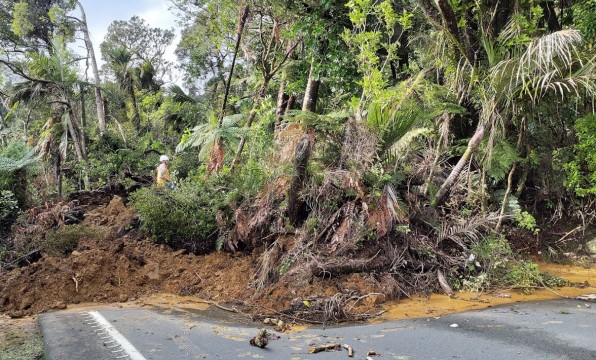Northland is bracing for another bout of heavy rain, while barely recovering from the weekend’s storm.
The downpour was labelled a “one in 500 year event” by MetService, and the region’s Civil Defence is predicting an expensive clean-up.
The SMC asked experts to comment.
Professor James Renwick, Head of School of Geography, Environment and Earth Sciences, Victoria University of Wellington, comments:
“The recent flooding in Northland has been devastating for many communities. Having your home, your farm, or your business flooded must be a terrible experience, let alone damage to infrastructure. The economic costs of such events can be huge.
“The bad news is that such deluges are becoming more frequent and more intense as the climate warms. The reason is that a warmer atmosphere can contain more moisture (water vapour), so when a storm comes along, there is more water to wring out of the sky, leading to a greater likelihood of heavy rain and flooding. We already see this trend in heavy rainfall statistics from around the world.
“The rainfalls experienced recently in Northland have been estimated as a ‘1-in-500-year’ event. This doesn’t mean we have to wait another 499 years to see the next one, more that there’s a 1-in-500 chance of experiencing such a heavy rainfall in any given year. Putting an exact likelihood on such a rare event is hard to do precisely, but what we do know is that as the climate warms, those odds are shortening. The only way to stop this happening is to reduce greenhouse gas emission as fast as we can.”
No conflict of interest declared.
Associate Professor Asaad Shamseldin, Faculty of Engineering, University of Auckland, comments:
“This year we have witnessed contrasting extreme weather events. We have a drought followed by extreme rainfall storms in some parts of the country.
“The drought in Auckland has resulted in water restrictions. In recent days, Northland has experienced a one-in-500-year rainfall storm which is a very extreme event. This has resulted in flooding and home evacuation. It has also caused damage to water treatment plants resulting in water restrictions.
“These extreme weather events highlight the importance of adaptive risk managements to identify community vulnerabilities. There is a need for comprehensive national guidelines for flood estimation and risk management such as those used in Australia. With the envisaged climate change impacts these extreme events may become the new norm. Therefore, climate change adaptation is paramount for improving community resilience.”
No conflict of interest declared.
